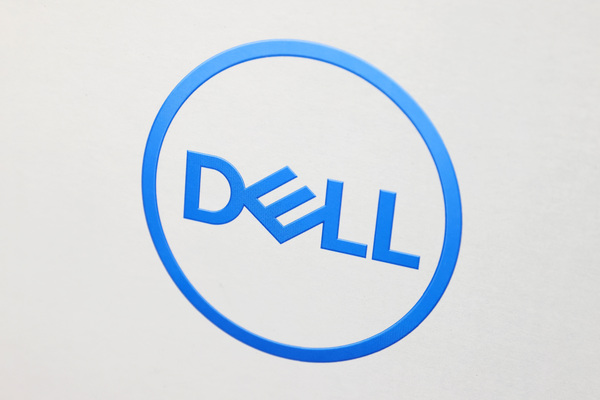Driving small business success with technology

John Carpenter at QCF explains how technology is changing the game for small businesses
Business and technology have worked in tandem for millennia. From the invention of the wheel to the printing press, computer and the rise of Artificial Intelligence — each technological leap has revolutionised the world of business. Considering the rapid rate of today’s technological advancements, this symbiotic relationship is more prevalent than ever before.
But how will technology specifically transform the way businesses are formed in the future, especially for start-ups? Let’s explore.
AI will become ubiquitous
AI has transformed the composition of the workplace — but not in the way some might assume. In 2023, Goldman Sachs published a report stating that AI could replace the equivalent of 300 million full-time jobs. Some have called this an impending ‘apocalypse’, but the AI industry is also in the process of creating a job boom in the same way that the invention of the combustion engine (and the industrial revolution, more generally) both destroyed and created parts of the global economy at the time.
For decades, AI has been abstract. Now it is a very real part of many sectors, globally. A survey by HubSpot found that 66% of business leaders in the US have begun hiring new employees specifically to help with leveraging and implementing AI, such as prompt engineers (who specialise in designing, creating, and optimising prompts for AI chatbots). It was noted on Google Trends that searches for the term ‘prompt engineer’ increased by 120% in 2023.
The implementation of AI has had an undeniable impact on the modern-day workplace. It is especially useful for start-ups with small teams and low resources, for whom cost-effectiveness is all important. OpenAI’s ChatGPT and other language-learning AI tools are an obvious starting point in helping small businesses complete menial and labour-heavy tasks, from accounting to communications.
As big corporates begin to hire AI experts in their thousands to roll out more sophisticated AI products and services, it’s likely that start-ups and SMEs will follow suit, especially as the AI market becomes more affordable with time.
It is important to note, however, that companies (large and small) will have to navigate the risks involved in deploying new technologies. For example, AI chatbots such as ChatGPT and Google’s Gemini have come under scrutiny for the prevalence of “hallucinations” (a phenomenon in which AI models make up facts) in their responses. While AI chatbots are incredibly efficient, they clearly have some way to go in terms of their accuracy and accountability, and their implementation still requires a significant level of human input to be effective.
Blockchain revolutionises fundraising
Web3 and the wider world of decentralised finance is changing how consumers, companies and corporations buy and sell. At the heart of this technological revolution is blockchain technology, which, put simply, is a secure, transparent and unchangeable way to record and verify information. ‘Smart contracts’ — a self-operating and self-enforcing digital agreement run on blockchain — are transforming the way newly formed businesses approach fundraising.
For many start-ups, especially in fintech, capital raising is the number one priority after incorporation. Smart contracts enable the tokenisation of assets, which simplifies the process of raising capital during fundraising. Tokens provide increased liquidity, faster settlements and lower costs for investors. Furthermore, smart contracts will automatically protect investor funds. If your start-up is in the market for investors, these benefits will definitely make the process more appealing.
Hyperautomation streamlines workflow
AI, machine learning and robotic process automation are deemed as the three big hitters for the future of technology. Through hyperautomation, these coveted new technologies have become integrated, giving decision-makers faster, more accurate access to critical data and insight. It can be best understood as “a business-driven, disciplined approach that organisations use to rapidly identify, vet and automate as many business and IT processes as possible.”
Gartner states that hyperautomation is rapidly shifting from “an option” to a “condition of survival”, as their recent survey showed that 85% of participants will increase or sustain their organisation’s hyperautomation investments over the next 12 months.
But what does hyperautomation mean for newly formed businesses? The success of a fresh start-up can be quite dependent on the efficiency of its workflow - hyperautomation erases deficiencies and gaps across all work processes. If your business is currently using robotic process automation to collect online customer support queries, and AI to help write the responses, hyperautomation can integrate both elements to streamline the process and turn what used to be two clunky actions into one slick automation.
Cloud technology increases flexibility
Technology has changed the way businesses share information rapidly and irreversibly. Cloud technology makes it easier than ever for businesses to access data on demand and share it with stakeholders with limited risk of information infiltration.
Most businesses are already making good use of cloud technology, from Google Docs for brainstorming to Slack — the team communication tool that helps coworkers collaborate through messaging— for cross-team communications.
For newly formed businesses, especially start-ups, emerging cloud technologies will enable maximum flexibility. You won’t have to panic about having all the relevant files for your big pitch because it’s all securely stored in the cloud. If your Head of Growth is working remotely for a week, you can collaborate with them in real-time using cloud services. Essentially, cloud technology means that no amount of miles or files are too many — everything and everywhere is accessible via a laptop.
Open-source software fuels fintech innovation
The fintech industry has rapidly expanded in the past five years, and thanks to open source software and serverless software, the once seemingly unattainable barriers to entering the fintech game are only getting lower and lower. McKinsey argues that these types of software have become must-haves for technology players and traditional financial institutions launching new fintech businesses, and it’s easy to see why.
Entrepreneurs can leverage these free software options to reduce initial expenses, while also tailoring solutions to meet specific business needs through code modification. With a diverse community of developers providing support and sharing knowledge, start-ups can accelerate development timelines and ensure interoperability with existing systems. The transparency of open-source software builds trust among customers and partners, enabling fintech start-ups to innovate and scale more efficiently within the financial industry landscape
Extraordinary opportunity
The future landscape of business formation is brimming with extraordinary opportunity, thanks to powerful technological advancements. However, as companies are only just beginning to trial and troubleshoot their uses, emerging technologies also come with a certain level of risk when adopted by SMEs.
For example, blockchain technology, which is widely considered to be the most groundbreaking technological innovation for businesses, has garnered concerns due to the sheer amount of energy required to power its computational requirements. This has led to valid concerns about the carbon emissions and environmental impact of blockchain technology.
Technological advancements are undoubtedly changing the game for newly formed businesses, but SMEs should proceed with caution before implementing and investing in them. It’s always worth reaching out to specialists in business set-up and optimisation before your business enters an emerging technological landscape.
John Carpenter is a Director at QCF, a leading consultancy specialising in business setup and optimisation
Main image courtesy of iStockPhoto.com and LumiNola

Business Reporter Team
Most Viewed
Winston House, 3rd Floor, Units 306-309, 2-4 Dollis Park, London, N3 1HF
23-29 Hendon Lane, London, N3 1RT
020 8349 4363
© 2025, Lyonsdown Limited. Business Reporter® is a registered trademark of Lyonsdown Ltd. VAT registration number: 830519543





